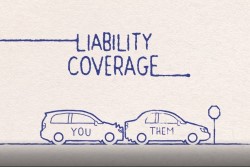What Is The Role Of A Home Insurance Broker?
When you enter the homeowners insurance market, you have a variety of options to choose from. Home insurance can be purchased in a number of ways: directly from an insurance provider, through a proprietary agent, through an independent agency, or through a broker representing several different providers. It is important to understand what a home insurance broker does and when it is appropriate to hire an insurance broker.
Just like independent insurance brokers arrange life, home and other types of insurance, so do home insurance brokers.
Home Insurance Broker
Home insurance brokers, often referred to as home insurance brokers, act as intermediaries between home buyers and insurance providers. As a result, brokers can find the best rates for their clients' home insurance policies. They are like independent insurance agents, writing policies for different types of insurance such as home, life, and auto insurance.
Why do I need a home insurance broker?
Sometimes an insurance broker can help the buyer or owner get the best price on an insurance policy, especially if the property insured is special in some way. If you live in an area prone to tornadoes or hurricanes, some airlines may not allow you to purchase insurance. Customers save time because their home insurance agent is familiar with their policies and regulations, so they don't have to waste time contacting the wrong insurance company.

Home insurance brokers are interested in the following information:
Before coming up with a policy that suits your needs and situation, a real estate agent should ask you the questions many insurance agents will. Before meeting, please consider the following.
Cover Family Structure
Risks mentioned in the policy, such as B. Fire may damage your home, this insurance should cover the cost of repair or replacement. If your home is exposed to other risks not covered by the standard policy, you will need additional coverage, such as: B. Earthquake or flood. Your agent may also get this coverage. As a borrower, your lender may require you to purchase some level of insurance.
Insurance For Personal Items.
This part of insurance protects your furniture, clothes and other household items. The financial value of insurance usually depends on the insurance of the structure; eg 50% - 70% coverage of the structure. It's a good idea to buy a floating tag or tag for any unusually expensive item you own, including art or jewelry, to make sure you're covered in the event of loss.
Liability Insurance.
If someone is injured on your property, this section will protect you and sue you for their injury. This policy may cover you if you are accused of personal injury or property damage outside your home. When you buy home insurance, you almost always get at least $100,000 in liability coverage. If you need more coverage than your current policy offers, ask your broker about getting umbrella coverage. Let your agent know if you run a home business.

Additional Living Expenses.
If an insured accident renders your home uninhabitable, this insurance can help you pay for your hotel while you wait for things to return to normal.
Related Articles
- Reasons why your homeowners insurance may be cancelled
- The Advantages And Disadvantages Of Purchasing Permanent Life Insurance
- Which Is Better - Term Life Insurance Or Permanent Life Insurance
- Challenges Facing the Insurance Industry Today
- Why your auto insurance claim may not be accepted
- Mistakes you may make when applying for homeowners insurance
- Lapses: An Overview
- The Benefits and Risks of Life Insurance. Do you need one.
- Getting Homeowners Insurance With a Bad Roof
- Factors Affecting Cost Of Travel Insurance
Reading Rankings
- How Covid-19 has affected the Insurance Industry
- Factors Affecting Cost Of Travel Insurance
- What are the principles of good insurance?
- The role and importance of insurance
- 2022’s Top Car Insurance Companies
- Reasons why your homeowners insurance may be cancelled
- The Different Types of Insurance Companies
- Top 5 Homeowners Insurance Mistakes You Should Avoid Making
recommended
![]()
The essential functions of an insurance company
![]()
2022’s Top Car Insurance Companies
![]()
Challenges Facing the Insurance Industry Today
![]()
The Major Policies Offered Under Property Insurance Cover
![]()
Top 5 life insurance mistakes people make
![]()
What Is Umbrella Insurance? How Does It Work?
![]()
5 Result-yielding Ways To Save Money On Your Homeowners Insurance
You might like
- Reasons Why Your Homeowner's Insurance Might Get Cancelled
- Factors affecting travel insurance costs
- Challenges Facing the Insurance Industry Today
- Why Your Car Insurance Claim Might Not Be Accepted
- Which Is Better - Term Life Insurance Or Permanent Life Insurance
- The Insurance Industry’s Trends
- Reasons Why You Might Need To File A Travel Insurance Claim
- Do I Require Insurance For My Home-based Business?







